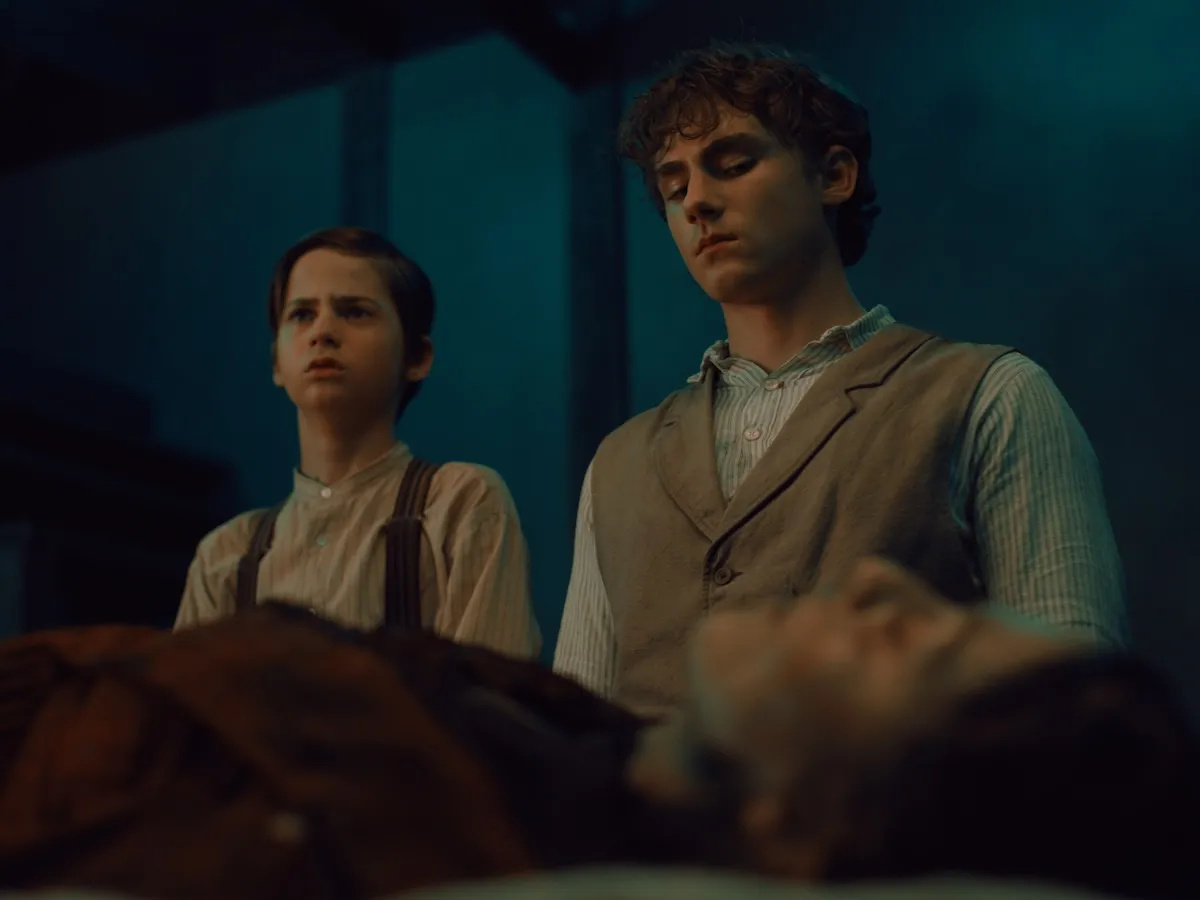
Introduction
Joe Hill’s short story “Abraham’s Boys,” first published in his 2005 collection 20th Century Ghosts, reimagines the iconic vampire hunter Abraham Van Helsing from Bram Stoker’s Dracula. Set in early 20th-century America, the narrative delves into the complexities of fatherhood, trauma, and the blurred lines between heroism and monstrosity.
🧛♂️ Synopsis: The Van Helsing Family in America
Following the events of Dracula, Abraham Van Helsing relocates with his wife, Mina, and their two sons, Max and Rudy, to a secluded farm in the United States. The family’s past is marred by scandal, forcing them to leave Europe. Abraham, now an aging and paranoid figure, continues his relentless crusade against vampires. He subjects his sons to rigorous training, indoctrinating them into his worldview. While Max is skeptical and introspective, Rudy is more impressionable and eager to please his father.
The story unfolds through Max’s perspective, revealing the oppressive atmosphere of their home and the psychological toll of Abraham’s methods. The boys’ discovery of a hidden room containing a bound woman, whom Abraham claims to be a vampire, forces them to confront the disturbing nature of their father’s actions.
🧠 Themes and Analysis
1. Legacy and Trauma
“Abraham’s Boys” examines the transmission of trauma across generations. Abraham’s obsessive pursuit of vampires stems from his own experiences with Dracula. His fixation on eradicating evil leads him to impose harsh discipline on his sons, perpetuating a cycle of fear and violence. Max’s internal conflict reflects the struggle to break free from a toxic legacy while grappling with the desire for paternal approval.
2. Heroism vs. Monstrosity
The story questions the nature of heroism. Abraham’s actions blur the line between righteous vengeance and sadistic cruelty. His belief in the righteousness of his cause justifies morally questionable decisions. This ambiguity challenges readers to consider the cost of unwavering conviction and the potential for corruption inherent in absolute certainty.
3. Family Dynamics and Power
At its core, the narrative is a study of familial power dynamics. Abraham’s authoritarian control over his sons stifles their autonomy and fosters resentment. The strained relationships within the family mirror the broader theme of how power and control can distort love and trust.
🎬 Film Adaptation: A Cinematic Reimagining
In 2025, Natasha Kermani directed a film adaptation titled Abraham’s Boys: A Dracula Story, which premiered at the Overlook Film Festival and was later released by RLJE Films and Shudder. The film expands upon Hill’s narrative, introducing new characters and settings while maintaining the original story’s themes. Titus Welliver portrays Abraham Van Helsing, with Jocelin Donahue as Mina and Brady Hepner and Judah Mackey as Max and Rudy, respectively.
📚 Conclusion
Joe Hill’s “Abraham’s Boys” offers a compelling exploration of the complexities of fatherhood, the inheritance of trauma, and the moral ambiguities of vigilantism. Through the lens of a family haunted by its patriarch’s obsessions, the story delves into the psychological scars left by a legacy of violence and the struggle to define one’s identity in the shadow of a domineering figure. Both the short story and its film adaptation provide thought-provoking narratives that challenge perceptions of heroism and the cost of vengeance.
Leave a Reply